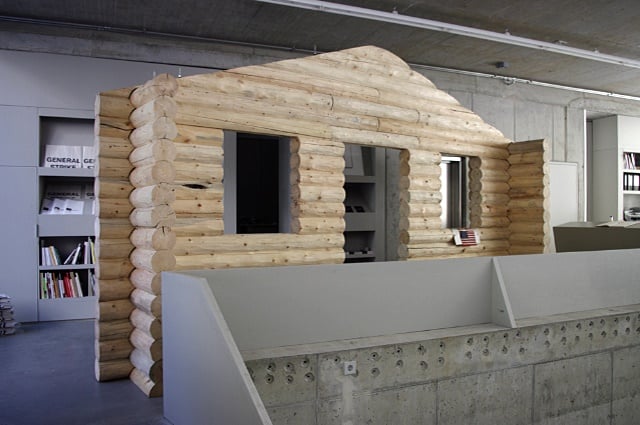
A US District Court Judge has dismissed a lawsuit brought by a collector who agreed to pay $1.4 million for a massive Cady Noland installation that the artist then disavowed due to unapproved restoration work.
Ohio collector Scott C. Mueller had sued both Berlin gallery Michael Janssen and art advisor Marisa Newman for return of the $800,000 portion of the price he said he was owed. In an interesting twist, the original purchase agreement included a buyback clause due to the artist’s well-known history of intense reaction to sales of her work. For instance, she once disavowed a work that was intended for auction at Sotheby’s, also leading to a lawsuit after the work was withdrawn from the sale.
The judge in this case, Naomi Reice Buchwald, was notably firm in her ruling that Newman’s request for dismissal was merited on several grounds. Buchwald found that Newman did not have a fiduciary duty to Mueller, and that there was no breach of contract or unjust enrichment. Buchwald further ruled that the claims against Janssen should also be dismissed since they had not actually been filed in Germany in the year and a half since the original filing (June 22, 2015) in the Southern District of New York.
Alan Effron, the attorney for Newman, told artnet News: “The decision is significant in the art world because it expressly recognizes that an art dealer or consultant does not automatically assume a fiduciary or heightened duty to a buyer simply because he or she gives advice or helps facilitate a transaction.” Effron added: “Among other things, the court held that, even from the face of the amended complaint, without the need of any discovery, Newman did not breach any duty to Mueller.”
The outstanding $1 million question now is what is the market value of the work, since Noland has publicly and vehemently disavowed it. It is highly doubtful after this deal turned disastrous that another buyer will step up or express interest.
Noland is one of the most expensive living female artists in the world, as previously reported by artnet News.
As part of her 19-page ruling, Buchwald wrote: “Plaintiff has failed to sufficiently allege any element of a breach of fiduciary duty claim against Newman,” and quoting from another ruling to opine that “Advice alone, however, is not enough to impose a fiduciary duty.”
Another version of Cady Noland’s Log Cabin work.
As for the breach of contract claim, the judge wrote: “Even assuming that a fiduciary relationship existed, the Amended Complaint fails to allege a cognizable breach.”
It is unclear whether Mueller received back the $800,000 he was seeking. Attorneys for Mueller have not responded to artnet News’ request for comment.
According to the original complaint, Log Cabin had long been owned by German collector Wilhelm Schurmann. A written agreement and purchase of sale was written in July 2014 (artnet News erroneously reported that the sale had taken place in 2013 in an earlier story).
According to the complaint, “prior to the shipment,” an agent for Mueller, Brett Shaheen, sent a letter to the artist to inform her of the sale and the replacement of the logs that had rotted in the ten years it sat outside at a museum in Germany.
“Noland called Shaheen,” court papers state. “Noland angrily denounced the restoration of the artwork without her knowledge and approval. She further stated that any effort to display or sell the sculpture must include notice that the piece was remade without the artist’s consent, that it now consists of unoriginal materials, and that she does not approve of the work.”
She also faxed a handwritten letter to Mueller in July 2014, stating “This is not an artwork” and objecting to the fact that it was repaired by a conservator “BUT THE ARTIST WASN’T CONSULTED.”
At that point Shaheen then informed Janssen and Newman about Noland’s phone call, indicating the intent to “proceed under the terms of the purchase agreement.”
According to the complaint Janssen said he had spoken with Schurmann and that there were “not much options to calm ‘crazy’ Cady down.”